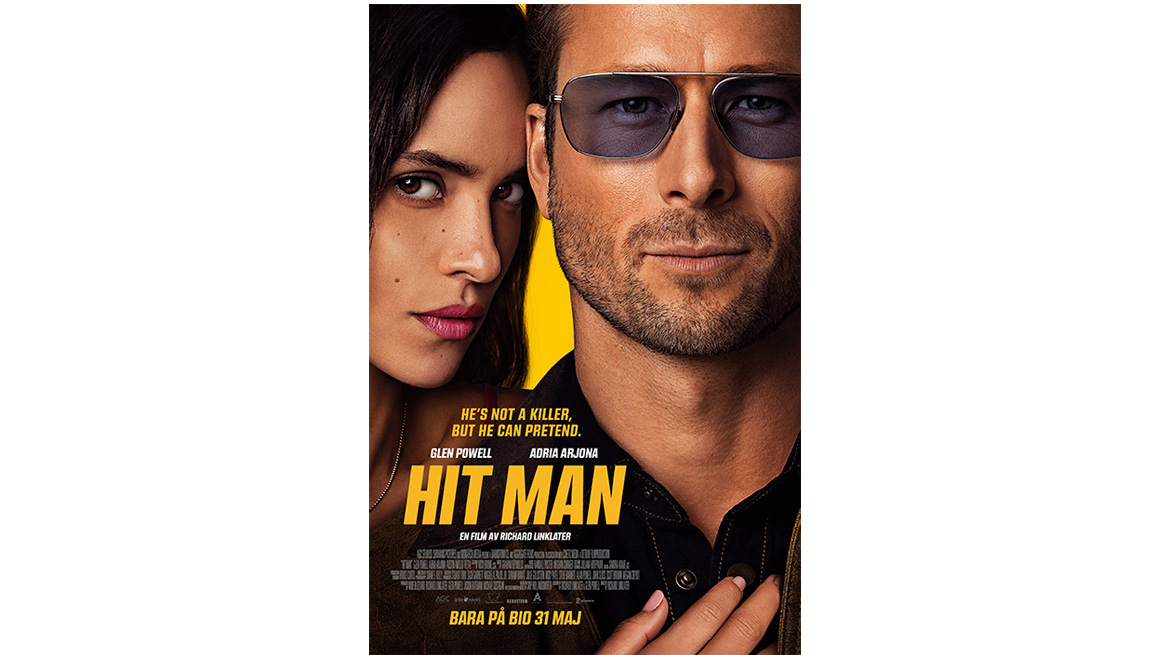TL;DR
Glen Powell shines as a mild-mannered professor moonlighting as a fake hitman for the police, effortlessly switching between personas. When he meets a woman seeking to hire him to kill her abusive husband, their relationship sparks a thrilling, complex, and at times, unbelievable chain of events. While praised for Powell's performance and Linklater's direction, the film's pacing stumbles with an abrupt ending and a tad too many plot twists. Discover if this action-comedy hits its mark!
Hit Man recounts the story of university professor Gary Johnson (Glen Powell), who assumes a clandestine role as a purported contract killer for law enforcement. Johnson demonstrates an exceptional aptitude for embodying diverse personas, distinguishing himself in this unconventional undertaking. He undergoes a complete transformation from a reserved and diffident academic to a confident and convincing hitman. During an operation, he encounters Maddy (Adria Arjona), who seeks his services to eliminate her abusive spouse. This encounter precipitates a series of events that profoundly alter Johnson’s life, further complicated by the suspicions of police officer Jasper (Austin Amelio), who appears to possess undisclosed knowledge.

Director and writer Richard Linklater‘s career began with the independent film Slacker, followed by his breakthrough with Dazed and Confused in 1993. Linklater is recognized for his experimental approach to filmmaking, exemplified by Boyhood (2014), a film shot over a twelve-year period, chronicling a boy’s maturation from age seven to nineteen. The trailer for Hit Man, coupled with Linklater’s involvement as director and co-writer, immediately piqued my interest.
As previously mentioned, the film draws inspiration from the story of Gary Johnson, an individual who collaborated with the police for several years, posing as a fake hitman and apprehending numerous individuals seeking to commission murder. While the film adapts this premise, it takes considerable creative liberties. Despite sharing a name, the cinematic depiction of Johnson diverges significantly from the real person, who passed away the year before Hit Man premiered on Netflix in the USA in 2023.

Glen Powell delivers a compelling performance in the lead role, cementing his status as a rising star with numerous upcoming projects. Although I first encountered him in Top Gun: Maverick, he truly showcases his versatility in this film. Few actors have the opportunity to embody such a range of distinct characters within a single narrative.
Hit Man is marketed as an action-comedy, and while it features comedic elements, the narrative primarily focuses on the evolving relationship between Gary and Maddy. Maddy believes Gary to be a confident contract killer, unaware of his true identity as a timid academic. This dynamic presents certain challenges. While Powell convincingly portrays the hitman persona, his portrayal of the introverted teacher is less believable. It strains credulity that an individual with Powell’s physique and appearance would be depicted as a socially awkward and insecure instructor. Achieving his level of physical conditioning requires self-discipline and confidence, traits ostensibly lacking in the character at the beginning of the film. Had the film depicted his physical transformation concurrent with his adoption of the “Hit Man” persona, it would have enhanced the character’s believability, as his confidence would then be justified by his physical development.

Another point of concern is the film’s pacing. Just as the narrative reaches its climax, the film concludes. The ending also suffers from excessive complexity, with an overabundance of twists and turns, leaving me anticipating a further revelation that never materializes.
In conclusion, I rate the film as moderately entertaining, albeit with unrealized potential. With a runtime approaching two hours and a core narrative sufficient for approximately ninety minutes, certain scenes, particularly Gary’s protracted lectures, could have been judiciously excised.
